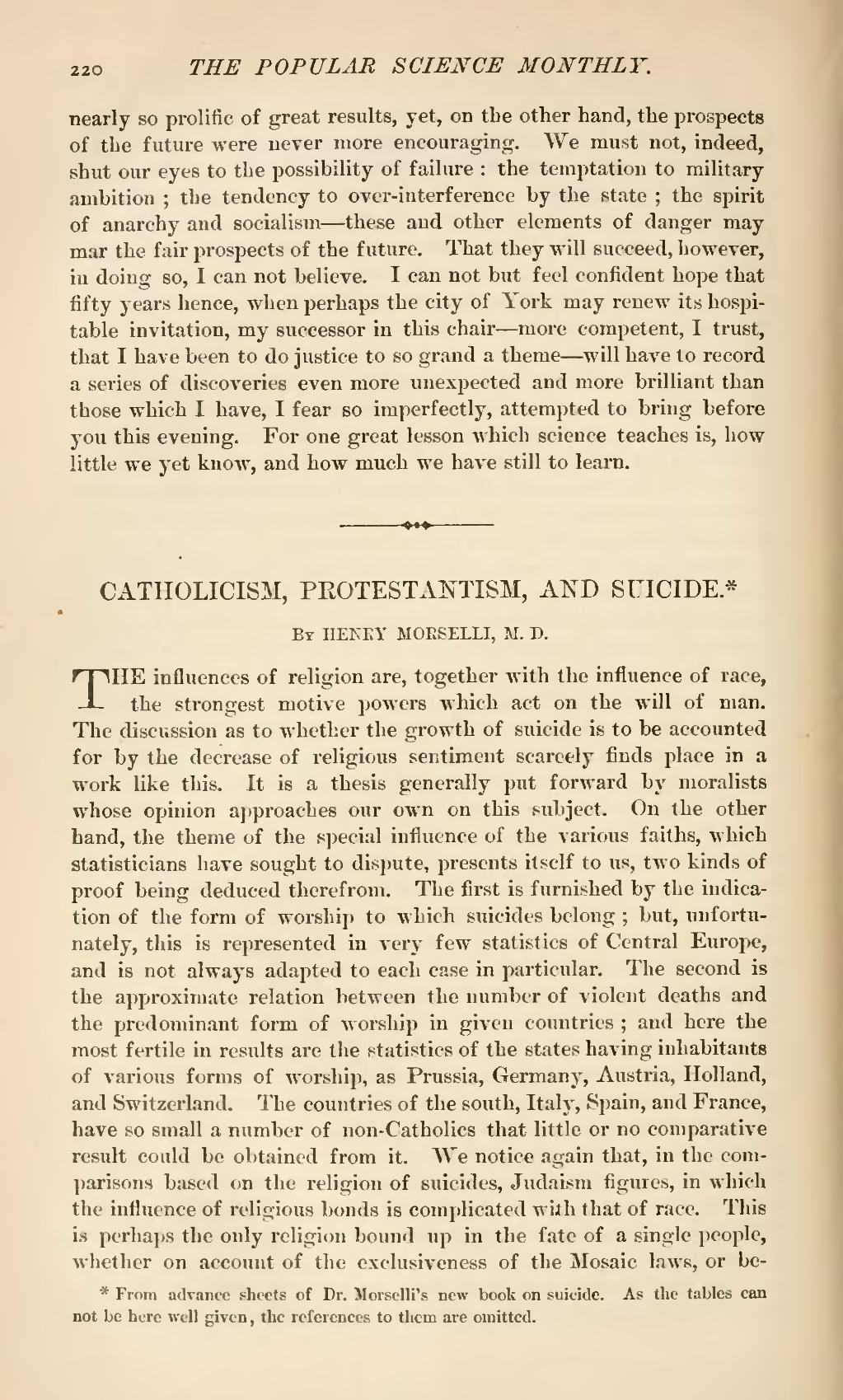nearly so prolific of great results, yet, on the other hand, the prospects of the future were never more encouraging. We must not, indeed, shut our eyes to the possibility of failure: the temptation to military ambition; the tendency to over-interference by the state; the spirit of anarchy and socialism—these and other elements of danger may mar the fair prospects of the future. That they will succeed, however, in doing so, I can not believe. I can not but feel confident hope that fifty years hence, when perhaps the city of York may renew its hospitable invitation, my successor in this chair—more competent, I trust, that I have been to do justice to so grand a theme—will have to record a series of discoveries even more unexpected and more brilliant than those which I have, I fear so imperfectly, attempted to bring before you this evening. For one great lesson which science teaches is, how little we yet know, and how much we have still to learn.
| CATHOLICISM, PROTESTANTISM, AND SUICIDE.[1] |
By HENRY MORSELLI, M. D.
THE influences of religion are, together with the influence of race, the strongest motive powers which act on the will of man. The discussion as to whether the growth of suicide is to be accounted for by the decrease of religious sentiment scarcely finds place in a work like this. It is a thesis generally put forward by moralists whose opinion approaches our own on this subject. On the other hand, the theme of the special influence of the various faiths, which statisticians have sought to dispute, presents itself to us, two kinds of proof being deduced therefrom. The first is furnished by the indication of the form of worship to which suicides belong; but, unfortunately, this is represented in very few statistics of Central Europe, and is not always adapted to each case in particular. The second is the approximate relation between the number of violent deaths and the predominant form of worship in given countries; and here the most fertile in results are the statistics of the states having inhabitants of various forms of worship, as Prussia, Germany, Austria, Holland, and Switzerland. The countries of the south, Italy, Spain, and France, have so small a number of non-Catholics that little or no comparative result could be obtained from it. We notice again that, in the comparisons based on the religion of suicides, Judaism figures, in which the influence of religious bonds is complicated with that of race. This is perhaps the only religion bound up in the fate of a single people, whether on account of the exclusiveness of the Mosaic laws, or be-
- ↑ From advance sheets of Dr. Morselli's new book on suicide. As the tables can not be here well given, the references to them are omitted.

